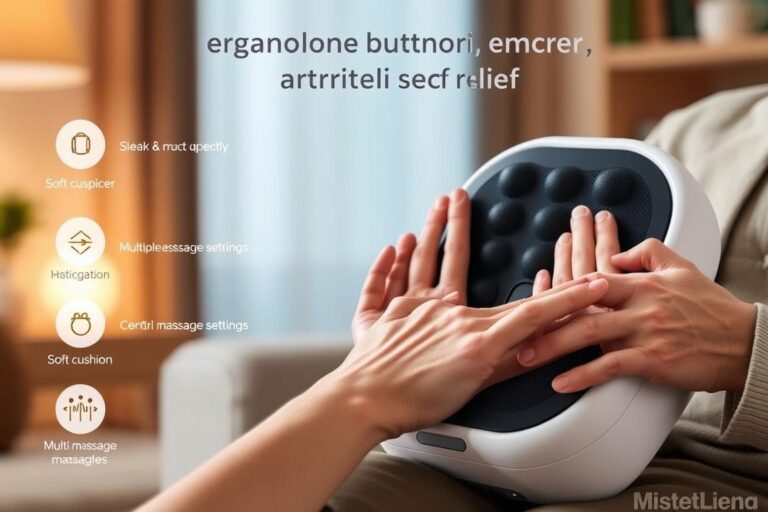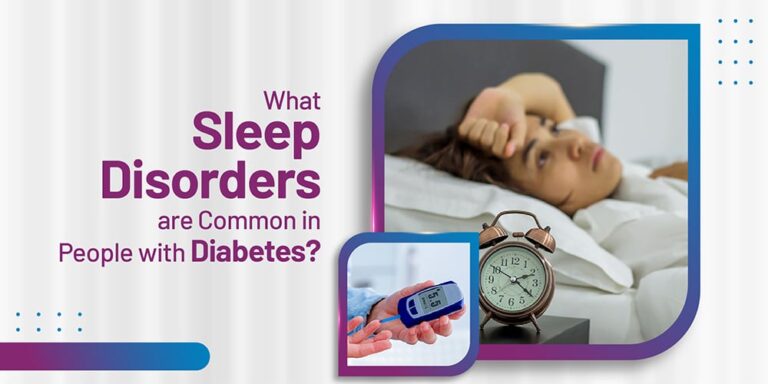Balancing Work and Life: Tips for Men’s Well-Being


Table of Contents
Understanding the importance of work-life balance
Work and life balance is an essential aspect of maintaining a healthy and fulfilling lifestyle. In today’s fast-paced and demanding world, it is easy to become consumed by work and neglect other important areas of our lives. However, recognizing the importance of achieving a balance between our professional and personal obligations is crucial for our overall well-being.
When our work-life balance is out of sync, it can have detrimental effects on our physical and mental health, relationships, and overall quality of life. Prolonged periods of excessive work hours and stress can lead to burnout, anxiety, depression, and a decline in productivity. On the other hand, neglecting our professional responsibilities for personal pursuits can hinder our career growth and financial stability.
Finding the right equilibrium between work and personal life allows us to lead a more harmonious and satisfying existence. It enables us to invest time and energy in nurturing our relationships, pursuing our passions and hobbies, and taking care of our physical and emotional well-being. Moreover, a well-balanced lifestyle promotes improved job satisfaction, increased productivity, and a greater sense of fulfillment in both our personal and professional endeavors.
Identifying signs of an imbalanced lifestyle-Balancing Work and Life
An imbalanced lifestyle can have detrimental effects on both our physical and mental well-being. It is important to be aware of the signs that indicate an imbalance in order to take necessary steps towards achieving a healthier work-life equilibrium. One of the common signs of an imbalanced lifestyle is chronic fatigue and exhaustion. If you find yourself constantly feeling drained and lacking energy, it may be a sign that you are overworking and neglecting time for rest and relaxation.
Another sign to look out for is experiencing high levels of stress and anxiety on a regular basis. Although a certain level of stress is normal, excessive and prolonged stress can have serious implications on our health. If you find yourself constantly feeling overwhelmed, irritable, or unable to cope with daily challenges, it may be an indication that your work-life balance is heavily skewed towards work.
Additionally, imbalanced lifestyles often manifest in poor physical health. Neglecting regular exercise, proper nutrition, and self-care can lead to weight gain, weakened immune system, and increased susceptibility to illnesses. If you find yourself consistently prioritizing work over taking care of your physical health, it is a sign that your work-life balance needs adjustment.
Recognizing and acknowledging these signs is the first step towards achieving a more balanced lifestyle. By being aware of the red flags, we can then take action to address these imbalances and prioritize our overall well-being.
Prioritizing self-care for improved well-being-Balancing Work and Life

Self-care is an essential component of maintaining overall well-being and achieving a healthy work-life balance. By prioritizing self-care, individuals can actively take steps to promote their physical, mental, and emotional health. Engaging in self-care activities not only allows individuals to recharge and replenish their energy, but it also helps to reduce stress and prevent burnout.
One important aspect of self-care is ensuring adequate rest and relaxation. Sleep plays a crucial role in promoting overall wellness and productivity. Lack of sleep not only affects performance and concentration, but it can also lead to various health issues such as increased risk of chronic conditions like cardiovascular disease and diabetes. It is important to prioritize a consistent sleep schedule and establish bedtime routines that promote relaxation and good sleep hygiene.
Additionally, nourishing the body with a balanced diet is paramount to overall well-being. Proper nutrition provides necessary nutrients and energy for daily activities and promotes optimal physical health. Consuming a diet rich in fruits, vegetables, whole grains, and lean proteins can enhance immune function, maintain a healthy weight, and reduce the risk of chronic illnesses.
Incorporating regular exercise into daily routines is also crucial for self-care. Engaging in physical activity not only improves cardiovascular health and strengthens muscles and bones, but it also enhances mood and reduces stress. Finding an exercise routine that is enjoyable and sustainable is key in maintaining consistency and reaping the numerous benefits that exercise provides.
In conclusion, prioritizing self-care is vital for individuals to achieve improved well-being. By focusing on activities that promote physical health, engage the mind, and nurture emotional balance, individuals can effectively manage stress and restore harmony in their lives. Taking time to care for oneself is not selfish, but rather an investment in one’s overall health and happiness. Striking a balance between work and personal life starts with prioritizing self-care.
Setting realistic and achievable goals-Balancing Work and Life
When it comes to achieving work-life balance, setting realistic and achievable goals is key. By establishing clear objectives that are within reach, individuals can avoid feelings of overwhelm and improve their overall well-being.
To start, it’s important to assess your current situation and identify what you hope to achieve. Is it a promotion at work, more time spent with loved ones, or simply finding more enjoyment in your daily activities? Once you have a clear understanding of what you want, break down your goals into smaller, actionable steps. This will not only make them more attainable, but also provide a sense of accomplishment along the way. Remember, it’s better to focus on a few goals that are meaningful to you rather than overwhelming yourself with an extensive list.
Effective time management strategies-Balancing Work and Life
In today’s fast-paced world, effective time management is key to maintaining a healthy work-life balance. By implementing certain strategies, you can maximize your productivity while ensuring that you have ample time for personal activities and self-care.
One important technique is prioritizing tasks. By determining which tasks are urgent and important, you can allocate your time and energy accordingly. Creating a to-do list and ranking tasks based on importance can help you stay focused and organized throughout the day. Additionally, breaking down larger projects into smaller, manageable tasks can make them feel less overwhelming and more achievable.
Another effective strategy is setting realistic and achievable goals. By setting specific, measurable, attainable, relevant, and time-bound (SMART) goals, you can stay motivated and on track. It’s important to be mindful of your limitations and not overcommit yourself. By setting realistic goals, you can avoid feeling overwhelmed and increase your chances of success.
By implementing these time management strategies, you can achieve a better work-life balance and improve your overall well-being. Remember, it’s not about simply managing time, but rather about making intentional choices and prioritizing what truly matters to you. Developing healthy habits and maintaining a balanced lifestyle will not only benefit you professionally, but also contribute to your personal happiness and fulfillment.
Establishing boundaries between work and personal life
Establishing boundaries between work and personal life is crucial for maintaining a healthy and balanced lifestyle. Without clear boundaries, it can be challenging to separate the responsibilities and demands of work from the time and energy needed for personal well-being.
One effective way to establish boundaries is by setting dedicated work hours. By defining specific start and end times for work, you create a structure that helps you prioritize your personal time. This practice not only allows you to focus on work during designated hours but also gives you the freedom to fully dedicate yourself to personal pursuits outside of work. It is important to communicate these boundaries to colleagues and clients, ensuring they understand your availability and limitations. By doing so, you can reduce the likelihood of work-related interruptions and create a clearer distinction between your professional and personal life.
Additionally, establishing physical boundaries can help create a sense of separation between work and personal spaces. Designating a specific area in your home as your workspace can serve as a visual cue to your brain that it is time to focus on work. Conversely, creating spaces in your home for relaxation and leisure can reinforce the importance of personal time and aid in switching off from work-related thoughts and stress. Utilizing techniques like closing the door to your office or packing away work-related materials at the end of the day can further reinforce these boundaries and promote work-life balance.
Utilizing technology to streamline tasks and increase efficiency-Balancing Work and Life
Technology has become an integral part of our lives, transforming the way we work and interact with the world. When it comes to achieving a better work-life balance, utilizing technology can play a crucial role in streamlining tasks and increasing efficiency. With the ever-evolving advancements in software and applications, we now have tools at our fingertips that can revolutionize our productivity.
One way technology can streamline tasks is through automation. By automating repetitive and time-consuming tasks, we can free up valuable time to focus on more important and fulfilling aspects of our lives. From scheduling appointments and organizing meetings to managing emails and tracking project progress, technology can take care of these mundane tasks so we can devote our energy to more meaningful activities. Additionally, tools like project management software and virtual collaboration platforms enable seamless communication and coordination among team members, eliminating the need for constant back-and-forth emails and unnecessary meetings.
Moreover, technology allows for better time management by providing us with tools and apps that can help prioritize and track tasks. From to-do lists and reminders to time-tracking apps, these tools empower us to stay organized, meet deadlines, and stay on top of our responsibilities. With the ability to set alerts and notifications, we can ensure that we stay focused and accomplish tasks efficiently. This not only enhances our productivity but also allows us to have a clear delineation between work and personal life, leading to a more balanced and fulfilling lifestyle.
Incorporating technology into our daily routines not only streamlines tasks but also increases our overall efficiency. By embracing the endless possibilities that technology offers, we can make the most of our time, allowing us to juggle our professional and personal responsibilities more effectively. So, let’s harness the power of technology, leverage its benefits, and pave the way for a more balanced and harmonious work-life equation.
Developing a support system for emotional and mental well-being

Developing a support system for emotional and mental well-being is essential in maintaining a healthy work-life balance. It can greatly contribute to your overall well-being and help you navigate the challenges that come with professional and personal responsibilities. Research has consistently shown that having a strong support network can reduce stress, improve mental health, and enhance productivity.
One way to develop a support system is by building strong relationships with friends, family, and colleagues who can offer understanding, empathy, and encouragement. These individuals can provide a safe space for you to express your thoughts and feelings, and they can offer valuable advice and guidance. It is important to nurture these connections by regularly checking in with them, engaging in meaningful conversations, and being available to support them in return.
Additionally, seeking professional support can prove beneficial. Mental health professionals, such as therapists or counselors, are trained to assist individuals in managing stress, anxiety, and other emotional challenges. They can provide tools and techniques to cope with workplace pressures and help you develop healthy coping mechanisms. It is important to remember that seeking professional help is a sign of strength, and it can significantly contribute to a balanced and fulfilling life.
Developing a support system for emotional and mental well-being is an ongoing process that requires effort and mutual support. By surrounding ourselves with individuals who uplift and understand us, as well as seeking professional guidance when needed, we can create a strong foundation for maintaining a healthy work-life balance.
Incorporating physical activity into daily routines-Balancing Work and Life
Regular physical activity is essential for maintaining a healthy work-life balance. By incorporating physical activity into our daily routines, we can improve both our physical and mental well-being. Engaging in regular exercise not only helps to manage weight and prevent chronic diseases but also contributes to increased energy levels and improved mood.
Finding the time to incorporate physical activity into our busy schedules can be challenging, but it is possible. Start by identifying activities that you enjoy and that can easily be integrated into your daily routine. This could be as simple as taking a brisk walk during your lunch break or using the stairs instead of the elevator. Remember that every little bit counts, so even short bursts of physical activity throughout the day can have significant benefits.
References:
– Robinson, L., Segal, J., & Smith, M. (2020). The Mental Health Benefits of Exercise. HelpGuide. Retrieved from https://www.helpguide.org/articles/healthy-living/the-mental-health-benefits-of-exercise.htm
– Physical Activity Guidelines for Americans. (2018). U.S. Department of Health and Human Services. Retrieved from https://health.gov/sites/default/files/2019-09/Physical_Activity_Guidelines_2nd_edition.pdf
Nurturing personal relationships and social connections-Balancing Work and Life
As we navigate the complexities of our professional lives, it is all too easy to let our personal relationships and social connections fall by the wayside. However, nurturing and maintaining these connections is crucial for our overall well-being and happiness. Research has consistently shown that strong social support systems contribute to reduced stress levels, increased life satisfaction, and improved mental and physical health.
In today’s fast-paced world, it can be challenging to find the time and energy to invest in our relationships. However, prioritizing this aspect of our lives is essential. Make a conscious effort to carve out quality time with your loved ones, whether it’s a weekly dinner with your family, a coffee date with a friend, or a weekend getaway with your significant other. By setting aside dedicated time for these interactions, you are sending a clear message that you value and prioritize these relationships.
In addition to scheduling regular face-to-face interactions, technology can also play a valuable role in nurturing personal relationships. Utilize social media platforms, video calls, or messaging apps to stay connected with friends and family who may be geographically distant. While online interactions can never fully replace in-person connections, they can help bridge the gap when physical distance separates us. Remember, the key is to strike a balance and use technology as a tool to enhance our relationships rather than replace them.
When it comes to nurturing personal relationships and social connections, quality trumps quantity. Instead of spreading yourself thin trying to maintain a vast network of acquaintances, focus on cultivating a select few deep and meaningful relationships. Surround yourself with people who uplift and support you, and reciprocate that support in return.
Remember, investing in our personal relationships and social connections is not just a nice-to-have, but a critical component of a fulfilling and balanced life. Building and maintaining these connections takes effort and intentionality, but the rewards are immeasurable. So, take the time to reach out, listen, and show up for the people who matter most in your life. After all, these relationships are what truly give texture, meaning, and support to our journey.
Exploring hobbies and interests outside of work

Exploring hobbies and interests outside of work can provide a much-needed break from the daily grind, allowing individuals to recharge, relax, and find joy in activities that bring them fulfillment. Engaging in recreational pursuits not only benefits one’s mental and emotional well-being but also contributes to overall productivity and satisfaction in various aspects of life.
Dedicating time to hobbies and interests outside of work offers an opportunity for personal growth and self-expression. Whether it’s painting, playing an instrument, or practicing a sport, pursuing activities that one is passionate about can enhance creativity, boost self-confidence, and foster a sense of accomplishment. Additionally, engaging in these hobbies can serve as a means of stress relief, offering a reprieve from the demands and pressures of the workplace. By immersing oneself in an enjoyable pastime, individuals can cultivate a healthy work-life balance and establish a positive outlet for self-care.
Incorporating hobbies and interests into one’s routine also cultivates a sense of identity and connection with others. Joining clubs or organizations related to one’s interests allows for the opportunity to meet like-minded individuals, fostering camaraderie and building social networks outside of the professional sphere. Furthermore, exploring new hobbies can provide a chance to expand one’s horizons, learn new skills, and gain a fresh perspective. The benefits of engaging in recreational activities span beyond personal fulfillment, contributing to improved mental health, increased satisfaction, and a more holistic approach to life.
Learning to delegate and ask for help when needed-Balancing Work and Life
Delegating and asking for help when needed is a crucial skill in maintaining a healthy work-life balance. Many individuals feel the need to take on every task themselves, believing that seeking assistance is a sign of weakness or inability. However, learning to delegate effectively can actually improve productivity and reduce stress levels.
Delegation involves assigning tasks to others who have the necessary skills and abilities. By doing so, individuals can focus their energy on more important or strategic responsibilities, while also allowing their colleagues to develop new skills and grow professionally. Delegation not only relieves the burden of excessive workload but also fosters teamwork and collaboration within the workplace.
Asking for help is another aspect of maintaining a balanced lifestyle. It is important to recognize when one is overwhelmed or struggling to cope with the demands of work and personal life. Seeking support and assistance from colleagues, friends, or family members can alleviate stress and provide valuable insight or guidance. It is essential to remember that asking for help is not a sign of weakness but rather a demonstration of self-awareness and a commitment to one’s well-being.
Taking regular breaks and vacations to recharge-Balancing Work and Life
Regular breaks and vacations are essential for maintaining a healthy work-life balance and preserving overall well-being. Taking time off allows individuals to recharge both physically and mentally, enabling them to return to work with renewed energy and focus. Research has shown that individuals who take regular breaks are more productive, creative, and efficient in their work. In fact, a study conducted by the University of Illinois found that short breaks throughout the day can significantly improve concentration and prevent burnout.
Vacations, on the other hand, provide a longer period for relaxation, rejuvenation, and exploration. They allow individuals to step away from their daily routines and immerse themselves in new and stimulating experiences. Vacations have been found to reduce stress levels, increase happiness, and improve overall mental health. According to a study published in the Journal of Happiness Studies, individuals who take regular vacations report higher levels of life satisfaction and greater sense of well-being.
Incorporating regular breaks into daily routines and planning vacations throughout the year should not be seen as a luxury, but rather as a vital aspect of maintaining a healthy work-life balance. By prioritizing time for rest and rejuvenation, individuals can enhance their productivity, prevent burnout, and ultimately lead a more fulfilling and balanced life.
Managing stress and avoiding burnout-Balancing Work and Life

Stress and burnout can have detrimental effects on both our physical and mental well-being. It is crucial to understand the importance of managing stress levels and taking proactive steps to avoid burnout. One effective strategy is to establish clear boundaries between work and personal life. This means setting aside dedicated time for relaxation, leisure activities, and spending quality time with loved ones. By creating a healthy balance between work and personal life, we can give ourselves the opportunity to recharge and rejuvenate, ultimately reducing the risk of burnout.
In addition, it is essential to prioritize self-care practices that promote overall well-being. Engaging in regular physical activity, such as exercise or yoga, can help combat stress and release endorphins that boost mood and energy levels. Furthermore, taking breaks throughout the workday, even if it is just for a few minutes, can provide much-needed mental rest and prevent the accumulation of stress. By incorporating these self-care practices into our daily routines, we can enhance our ability to cope with stress and maintain a healthy work-life balance.
Continuously reassessing and adjusting the work-life balance

It is essential to continuously reassess and adjust our work-life balance in order to maintain our well-being and prevent burnout. As our lives evolve and circumstances change, what may have worked for us in the past may no longer be effective. By regularly evaluating our priorities and commitments, we can ensure that we are allocating our time and energy in a way that aligns with our values and goals.
One way to reassess our work-life balance is to reflect on how our current lifestyle is impacting our physical and mental health. Are we experiencing chronic stress, fatigue, or feelings of overwhelm? Are we neglecting important aspects of our personal life, such as relationships or hobbies? By honestly assessing our overall well-being, we can identify areas that need improvement and take proactive steps to make necessary adjustments.
Additionally, it is crucial to be mindful of any signs or symptoms that indicate an imbalanced lifestyle. These can manifest in various ways, such as decreased productivity, irritability, or difficulty concentrating. By monitoring these warning signs, we can intervene early and prevent further deterioration. It is important to remember that our work-life balance is not a one-time achievement but an ongoing process that requires continuous evaluation and adjustment.
How can I identify if my work-life balance is imbalanced?
Signs of an imbalanced lifestyle may include feeling constantly overwhelmed, experiencing chronic fatigue, neglecting personal relationships, and having little time for hobbies or self-care.
What can I do to prioritize self-care for improved well-being?
It is important to carve out time for activities that promote self-care, such as exercising, practicing mindfulness or meditation, engaging in hobbies, getting enough sleep, and maintaining a healthy diet.
How can I set realistic and achievable goals to improve my work-life balance?
Start by identifying your priorities and determining what is most important to you. Break down larger goals into smaller, more manageable tasks, and establish a timeline to track your progress.
What are some effective time management strategies to improve work-life balance?
Some strategies include prioritizing tasks, creating a schedule or to-do list, minimizing distractions, delegating responsibilities when possible, and learning to say no to tasks that are not essential.
How can I establish boundaries between work and personal life?
Establishing clear boundaries can involve setting specific working hours, turning off work-related notifications outside of those hours, and dedicating time solely to personal activities or relationships.
How can I utilize technology to streamline tasks and increase efficiency?
Utilize tools such as project management software, task management apps, and automation tools to streamline tasks, improve organization, and increase productivity.
How can I develop a support system for emotional and mental well-being?
Building a support system can involve seeking therapy or counseling, confiding in trusted friends or family members, joining support groups, or participating in activities or hobbies that promote social connectedness.
How can I incorporate physical activity into my daily routine for better work-life balance?
Find activities you enjoy and make them a priority in your schedule, such as going for a walk or jog during lunch breaks, attending exercise classes, or incorporating physical activity into your morning or evening routine.
How can I nurture personal relationships and social connections while maintaining a work-life balance?
Schedule regular time to connect with loved ones, whether it’s through phone calls, video chats, or in-person meetings. Engage in activities together and actively listen and communicate with them.
How can exploring hobbies and interests outside of work help improve my work-life balance?
Engaging in hobbies and interests outside of work can provide a sense of fulfillment and enjoyment, and help create a healthy balance between work and personal life.
How can I learn to delegate and ask for help when needed to improve my work-life balance?
Recognize your limitations and don’t be afraid to delegate tasks to others. Asking for help or delegating responsibilities can help lighten your workload and create more free time for personal activities.
Why is taking regular breaks and vacations important for work-life balance?
Regular breaks and vacations are necessary to recharge and rejuvenate. They help prevent burnout, improve productivity, and allow for quality time spent with family, friends, or engaging in personal interests.
How can I effectively manage stress and avoid burnout?
Some strategies include practicing stress-management techniques such as deep breathing exercises, meditation, or mindfulness, engaging in activities that bring joy and relaxation, and seeking support when needed.
How often should I reassess and adjust my work-life balance?
It is recommended to continuously reassess and adjust your work-life balance on a regular basis, as your priorities, responsibilities, and circumstances may change over time.







